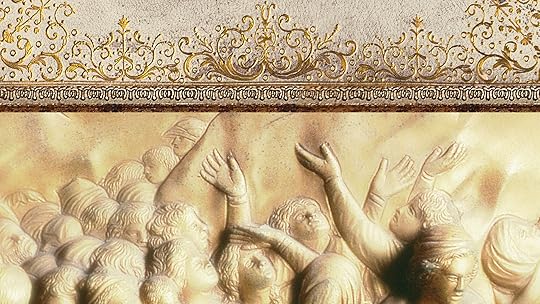R.C. Sproul's Blog, page 48
November 10, 2020
Discerning the Truth
Here’s an excerpt from Discerning the Truth, Burk Parsons' contribution to the November issue of Tabletalk:
Truth is hard to come by these days. If things don’t change, it will be even harder for our grandchildren. Even now, many people don’t know where to find truth, and, increasingly, they don’t even know how to search for it, believing that it can be found in the tweets of their favorite celebrities, at the top of a Google search, or on a Wikipedia page. However, the real problem for this and future generations is not fundamentally where and how they find the truth but their failure to recognize the truth. For this reason, we must train the next generation to discern truth not only from error but from half-truth, from distorted truth, and from partially-erased truth.
Continue reading Discerning the Truth, or begin receiving Tabletalk magazine by signing up for a free 3-month trial.
For a limited time, the new TabletalkMagazine.com allows everyone to browse and read the growing library of back issues, including this month’s issue.


November 9, 2020
Should Fear Play a Role in Our Evangelism?

Is it unloving or sadistic to warn people of God’s wrath when we tell them about the gospel? From one of our Ask R.C. events, R.C. Sproul considers whether fear should play any role in our evangelism.
Get answers to your biblical and theological questions online as they arise at ask.Ligonier.org.
Read the Transcript


Catechetical Evangelism

Although evangelism differs to some degree from generation to generation according to gifts, culture, style, and language, the primary methods of Puritan evangelism—plain preaching and catechetical teaching—can show us much about how to present the gospel to sinners.
Like the Reformers, the Puritans were catechists. They believed that pulpit messages should be reinforced by personalized ministry through catechesis—the instruction in the doctrines of Scripture using catechisms. Puritan catechizing was evangelistic in several ways.
Scores of Puritans reached out evangelistically to children and young people by writing catechism books that explained fundamental Christian doctrines via questions and answers supported by Scripture. For example, John Cotton titled his catechism Milk for Babes, drawn out of the Breasts of both Testaments. Other Puritans included in the titles of their catechisms such expressions as "the main and fundamental points," "the sum of the Christian religion," the "several heads" or "first principles" of religion, and "the ABC of Christianity." At various levels in the church as well as in the homes of their parishioners, Puritan ministers taught rising generations from both the Bible and their catechisms. Their goals were to explain the fundamental teachings of the Bible, to help young people commit the Bible to memory, to make sermons and the sacraments more understandable, to prepare covenant children for confession of faith, to teach them how to defend their faith against error, and to help parents teach their own children.
Catechizing was a follow-up to sermons and a way to reach neighbors with the gospel. Alleine reportedly followed his work on Sunday by several days each week of catechizing church members as well as reaching out with the gospel to people he met on the streets. Baxter, whose vision for catechizing is expounded in The Reformed Pastor, said that he came to the painful conclusion that "some ignorant persons, who have been so long unprofitable hearers, have got more knowledge and remorse of conscience in half an hour's close disclosure, than they did from ten years' public preaching." Baxter invited people to his home every Thursday evening to discuss and pray for blessing on the sermons of the previous Sabbath.
The hard work of the Puritan catechist was greatly rewarded. Richard Greenham claimed that catechism teaching built up the Reformed church and seriously damaged Roman Catholicism. When Baxter was installed at Kidderminster in Worcestershire, perhaps one family in each street honored God in family worship; at the end of his ministry there, there were streets where every family did so. He could say that of the six hundred converts brought to faith under his preaching, he could not name one who had backslidden to the ways of the world. How vastly different was that result compared with those of today's evangelists, who press for mass conversions and turn over the hard work of follow-up to others.
This excerpt is adapted from Living for God's Glory: An Introduction to Calvinism by Joel Beeke.


November 7, 2020
Nothing Less than the Word of God

What is the primary role that miracles serve? In this brief clip, R.C. Sproul examines the book of Hebrews to consider how God’s miraculous works relate to His Word.
Transcript:
Now we go to the book of Hebrews in the New Testament, and we read in the second chapter of Hebrews these words: “Therefore, we must give the more earnest heed to the things we have heard, lest we drift away. For if the word spoken through angels proved steadfast, and every transgression and disobedience received a just reward, how shall we escape if we neglect so great a salvation, which at the first began to be spoken by the Lord, and was confirmed to us by those who heard Him, God also bearing witness with signs and wonders, with various miracles, and gifts of the Holy Spirit.” We often think of bearing witness as something that only we do, that it’s our task to bear witness to Christ or to bear witness to God. But God bore witness to Jesus, and the way in which He bore witness to Jesus was by miracles. John Locke, the British philosopher, once said that the primary function—not the only function, but the primary function—of the miracle in the Bible is to be the credit of the proposer; that is, to prove the truthfulness of the person who was doing them, to certify that this person was endorsed by God and was speaking the truth of God. That’s why we have to be very, very, very careful about our understanding of miracles. Because, apart from the other functions that they have of relieving suffering and so on, in biblical times, one of the primary purposes of the miracle was to prove that this person was an agent of revelation, was somebody speaking nothing less than the Word of God.


November 6, 2020
Should We Cast Lots Today to Help Us Make Decisions?

Should we cast lots today in order to discern God’s will? From one of our Ask R.C. events, R.C. Sproul explains how we receive the Lord’s guidance to direct our decisions. Ask your biblical and theological questions live online at ask.Ligonier.org.
Read the Transcript


What Does "Give Us this Day Our Daily Bread" Mean?

Jesus teaches us to pray that God would give us daily bread (Matthew 6:11). Obviously Jesus was not telling His disciples to pray only for bread. But bread was a staple in the diet of the Jews, and had been so for many years. Furthermore, bread was a powerful symbol of God's provision for His people in the Old Testament. We remember how God cared for the Israelites when they were in the wilderness after their exodus from Egypt. Life in the wilderness was hard, and soon the people began to complain that it would be better to be back in Egypt, where they had wonderful food to eat. In response to these complaints, God promised to "rain bread from heaven" (Ex. 16:4). The next morning, when the dew lifted, there remained behind on the ground "a small round substance, as fine as frost. . . . It was like white coriander seed, and the taste of it was like wafers made with honey" (vv. 14, 31). When God miraculously fed His people from heaven, he did so by giving them bread.
It's interesting to me that in the language of Western culture, we sometimes speak of one partner in a marriage (it used to be almost exclusively the husband, but not so much these days) as the wage earner of the home. But more colloquially, we call that partner "the breadwinner." Even in our slang, we use the word bread as a synonym for "money." Bread remains, at least in our language, as a powerful symbol of the rudimentary basis of provision for our needs.
After the Korean War ended, South Korea was left with a large number of children who had been orphaned by the war. We've seen the same thing in the Vietnam conflict, in Bosnia, and in other places. In the case of Korea, relief agencies came in to deal with all the problems that arose in connection with having so many orphan children. One of the people involved in this relief effort told me about a problem they encountered with the children who were in the orphanages. Even though the children had three meals a day provided for them, they were restless and anxious at night and had difficulty sleeping. As they talked to the children, they soon discovered that the children had great anxiety about whether they would have food the next day. To help resolve this problem, the relief workers in one particular orphanage decided that each night when the children were put to bed, the nurses there would place a single piece of bread in each child's hand. The bread wasn't intended to be eaten; it was simply intended to be held by the children as they went to sleep. It was a "security blanket" for them, reminding them that there would be provision for their daily needs. Sure enough, the bread calmed the children's anxieties and helped them sleep. Likewise, we take comfort in knowing that our physical needs are met, that we have food, or "bread," for our needs.
This petition of the Lord's Prayer, then, teaches us to come to God in a spirit of humble dependence, asking Him to provide what we need and to sustain us from day to day. We are not given license to ask for great riches, but we are encouraged to make our needs known to Him, trusting that He will provide.
If we find that God's hand seems to be invisible to us and that we cannot discern His providential intrusion into our lives, that may be due partly to the way we pray. We have a tendency to pray in general. When we pray in general, the only way we will see the hand of God's providence is in general. As we enter into prayer, this conversation and communion with God, and put our petitions before Him, pouring out our souls and our needs specifically, we see specific answers to our prayers. Our Father has invited us to go to Him and ask Him for our daily bread. He will not fail to provide it.
This excerpt is taken from The Prayer of the Lord by R.C. Sproul. Download his Crucial Questions booklet Does Prayer Change Things?.


November 5, 2020
$5 Friday (And More): Grace, John Calvin, & Assurance of Faith

It’s time for our weekly $5 Friday sale. This week’s resources include such topics as grace, John Calvin, assurance of faith, legalism, the arts, predestination, and more.
Plus, several bonus resources are also available for more than $5. These have been significantly discounted from their original price. This week’s bonus resources include:
How Should I Think About Money? by R.C. Sproul, Paperback book $2 $1
How Can I Be Right with God? by R.C. Sproul, Paperback book $2 $1
Dispatches from the Front by Tim Keesee, Paperback book $15 $10
The Expository Genius of John Calvin by Steven Lawson, Audiobook CD $19 $9
Making a Difference by R.C. Sproul, Paperback $18 $12
Recovering the Beauty of the Arts with R.C. Sproul, Paperback $45 $15
Union with Christ with Sinclair Ferguson, CD $31 $18
What’s So Great about the Doctrines of Grace? by Richard Phillips, Audiobook CD $19 $10
Chosen by God with R.C. Sproul, CD $24 $10
Sale runs through 12:01 a.m.–11:59 p.m. Friday ET.
View today’s $5 Friday sale items.


November 4, 2020
The Kindness of the Law
The law of God not only directs us in our pursuit of holiness, but it also guides us to treat our neighbors with kindness and love. From his teaching series Discovering Deuteronomy, W. Robert Godfrey considers one way that this kindness is conveyed.
Transcript:
In verse 15 of chapter 19, "A single witness shall not suffice against a person for any crime or for any wrong in connection with any offense that he has committed. Only on the evidence of two witnesses or of three witnesses shall a charge be established. If a malicious witness arises to accuse a person of wrongdoing, then both parties to the dispute shall appear before the LORD, before the priests and the judges who are in office in those days. The judges shall inquire diligently, and if the witness is a false witness and has accused his brother falsely, then you shall do to him as he had meant to do to his brother. So you shall purge the evil from your midst. And the rest shall hear and fear and shall never again commit any such evil among you. Your eye shall not pity. It shall be life for life, eye for eye, tooth for tooth, hand for hand, foot for foot." Well now that's interesting, isn't it? Because that kind of verse, that last one, verse 21, "eye for eye," that's a sign of how severe the Old Testament was, how legal the Old Testament was. Well, that's true up to a point. But do you notice this is also about loving the neighbor? What are the terrible things you could do to a neighbor? Well, one of the worst things you could do to a neighbor is lie about him, lie about him in a court, lie about him in a court proceeding that may well lead to very serious punishment. And this provision is, if you lie about somebody in court, then the punishment you tried to have visited on someone else is going to be visited on you. That's justice. But there's also a kind of kindness to that, because this severity ought to lead people to stop being false witnesses, and that's kind to everybody if the reality of false witnesses comes to an end.


What Is the Doctrine of Divine Election?

The idea that God does what He wants, and that what He does is true and right because He does it, is foundational to our understanding of everything in Scripture, including the doctrine of election.
In the broad sense, election refers to the fact that God chooses (or elects) to do everything that He does in whatever way He sees fit. When He acts, He does so only because He willfully and independently chooses to act. According to His own nature, predetermined plan, and good pleasure, He decides to do whatever He desires, without pressure or constraint from any outside influence.
The Bible makes this point repeatedly. In the act of Creation, God made precisely what He wanted to create in the way He wanted to create it (cf. Gen. 1:31). And ever since Creation, He has sovereignly prescribed or permitted everything in human history, in order that He might accomplish the redemptive plan that He previously had designed (cf. Isa. 25:1; 46:10; 55:11; Rom. 9:17; Eph. 3:8–11).
In the Old Testament, He chose a nation for Himself. Out of all the nations in the world, He selected Israel (Deut. 7:6; 14:2; Pss. 105:43; 135:4). He chose the Israelites not because they were better or more desirable than any other people, but simply because He decided to choose them. In the words of Richard Wolf, “How odd of God to choose the Jews.” It might not have rhymed as well, but the same would have been true of any other people God might have selected. God chooses whomever He chooses for reasons that are wholly His.
The nation of Israel was not the only recipient in Scripture of God’s electing choice. In the New Testament, Jesus Christ is called “‘My Chosen One’” (Luke 9:35). The holy angels also are referred to as “elect angels” (1 Tim. 5:21). And New Testament believers are called “God’s chosen ones” (Col. 3:12; cf. 1 Cor. 1:27; 2 Thess. 2:13; 2 Tim. 2:10; Titus 1:1; 1 Peter 1:1; 2:9; 5:13; Rev. 17:14), meaning that the church is a community of those who were chosen, or “elect” (Eph. 1:4).
When Jesus told His disciples, “‘You did not choose me, but I chose you’” (John 15:16), He was underscoring this truth. And the New Testament reiterates it in passage after passage. Acts 13:48b describes salvation in these words: “As many as were appointed to eternal life believed.” Ephesians 1:4–6 notes that God “chose us in [Christ] before the foundation of the world, that we should be holy and blameless before him. In love he predestined us for adoption through Jesus Christ, according to the purpose of his will, to the praise of his glorious grace, with which he has blessed us in the Beloved.” In his letters to the Thessalonians, Paul reminds his readers that he knew God’s choice of them (1 Thess. 1:4) and that he was thankful for them “because God chose you as the firstfruits to be saved” (2 Thess. 2:13). The Word of God is clear: believers are those whom God chose for salvation from before the beginning.
The foreknowledge to which Peter refers (1 Peter 1:2) should not be confused with simple foresight. Some teach this view, contending that God, in eternity past, looked down the halls of history to see who would respond to His call and then elected the redeemed on the basis of their response. Such an explanation makes God’s decision subject to man’s decision, and gives man a level of sovereignty that belongs only to God. It makes God the One who is passively chosen rather than the One who actively chooses. And it misunderstands the way in which Peter uses the term foreknowledge. In 1 Peter 1:20, the apostle uses the verb form of that word, prognosis in the Greek, to refer to Christ. In that case, the concept of “foreknowledge” certainly includes the idea of a deliberate choice. It is reasonable, then, to conclude that the same is true when Peter applies prognosis to believers in other places (cf. 1 Peter 1:2).
The ninth chapter of Romans also reiterates the elective purposes of God. There, God’s electing prerogative is clearly displayed in reference to His saving love for Jacob (and Jacob’s descendants) as opposed to Esau (and Esau’s lineage). God chose Jacob over Esau, not on the basis of anything Jacob or Esau had done, but according to His own free and uninfluenced sovereign purpose. To those who might protest, “That is unfair!” Paul simply asks, “Who are you, O man, to answer back to God?” (v. 20).
Many more Scripture passages could be added to this survey. Yet as straightforward as the Word of God is, people continually have difficulty accepting the doctrine of election. The reason, again, is that they allow their preconceived notions of how God should act (based on a human definition of fairness) to override the truth of His sovereignty as laid out in the Scriptures.
Frankly, the only reason to believe in election is because it is found explicitly in God’s Word. No man and no committee of men originated this doctrine. It is like the doctrine of eternal punishment in that it conflicts with the dictates of the carnal mind. It is repugnant to the sentiments of the unregenerate heart. Like the doctrine of the Holy Trinity and the miraculous birth of our Savior, the truth of election, because it has been revealed by God, must be embraced with simple and unquestioning faith. If you have a Bible and you believe it, you have no option but to accept what it teaches.
The Word of God presents God as the controller and disposer of all creatures (Dan. 4:35; Isa. 45:7; Lam. 3:38), the Most High (Pss. 47:2; 83:18), the ruler of heaven and earth (Gen. 14:19; Isa. 37:16), and the One against whom none can stand (2 Chron. 20:6; Job 41:10; Isa. 43:13). He is the Almighty who works all things after the counsel of His will (Eph. 1:11; cf. Isa. 14:27; Rev. 19:6) and the heavenly Potter who shapes men according to His own good pleasure (Rom. 9:18–22). In short, He is the decider and determiner of every man’s destiny, and the controller of every detail in each individual’s life (Prov. 16:9; 19:21; 21:1; cf. Ex. 3:21–22; 14:8; Ezra 1:1; Dan. 1:9; James 4:15)—which is really just another way of saying, “He is God.”
This excerpt is adapted from Foundations of Grace by Steven Lawson.


November 3, 2020
Columns from Tabletalk Magazine, November 2020
The November issue of Tabletalk provides a biblical and theological view of truth. In our relativistic era, the concept of universal truth is routinely rejected. For example, it is common to hear people speak of “my truth” or “your truth.” Christians can find it difficult to navigate this cultural moment, for contrary to prevailing cultural winds, we believe in objective, revealed truth that is true for all people in all ages. This issue of Tabletalk seeks to assist Christians by reminding them of the reality of truth, exploring the various dimensions of truth and revelation, and exhorting them to defend and proclaim the truth of the gospel to their friends, family, and neighbors.
For a limited time, the new TabletalkMagazine.com allows everyone to browse and read the growing library of back issues, including this month's issue. You can also purchase the issue or subscribe to get the print issue every month.
Discerning the Truth by Burk Parsons
The Ninth Commandment and the God of Truth by Brian Crosby
Truth in a World of Lies by Dustin W. Benge
Relativism and Embodied Truth by Sharon James
Unashamed of the Truth by Nate Pickowicz
The Whole Truth of God by Max Rogland
Jesus the Truth-Teller by Terry L. Johnson
Communicating the Truth Online and in Person by Matthew Miller
Feeling the Truth by J. Alasdair Groves
Knowing the Truth by Paul Helm
Passing On the Truth by Tedd Tripp
Read the Entire Issue
Subscribe to Tabletalk today for only $23 a year, and $20 to renew. You save even more if you get a 2- or 3-year subscription (as little as $1.36 per issue). Get your subscription to Tabletalk today by calling one of Ligonier Ministries’ resource consultants at 800-435-4343 or by subscribing online.


R.C. Sproul's Blog
- R.C. Sproul's profile
- 1931 followers




